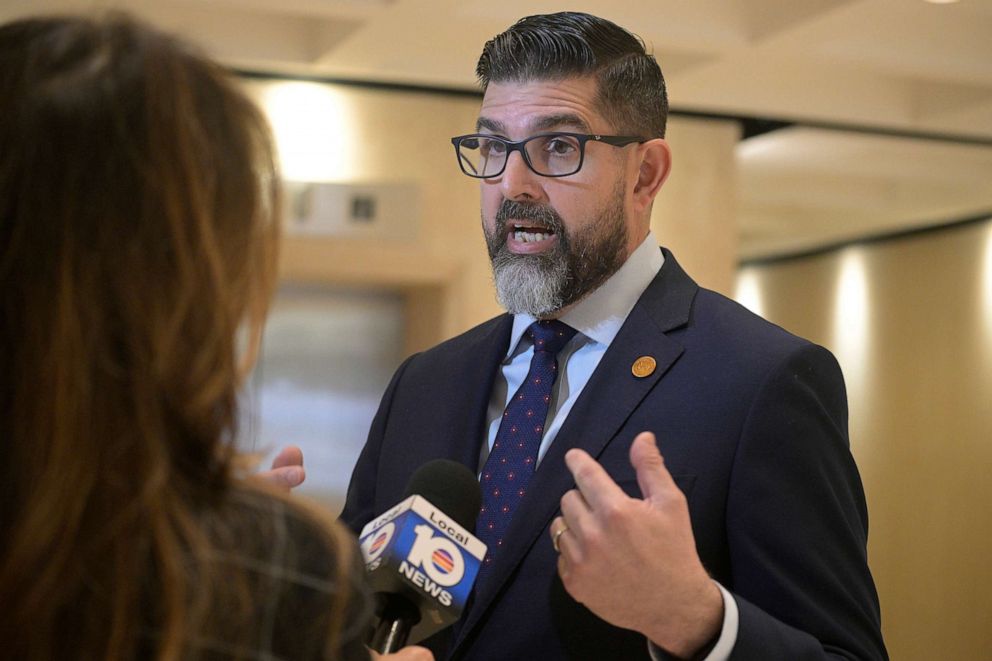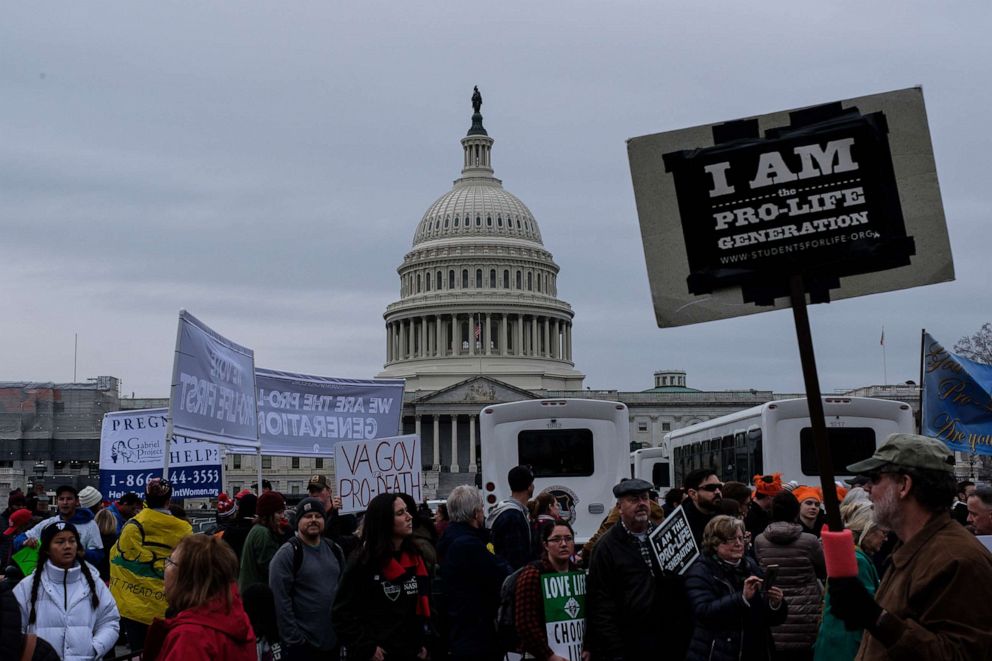GOP momentum continues in tightening voting laws: The Note
Hints are starting to emerge of what state-level changes to voting will mean.
The TAKE with Rick Klein
This week might be remembered for a big bill that didn't pass, or Democratic Party unity that didn't come together -- or maybe even for the start of a bipartisan push to change how the Electoral College vote is finalized.
What it won't be remembered for, though, is any change in the momentum Republicans have found in making voting more difficult across a range of states.
Almost lost in the Democrats' filibuster fight is the fact that all 50 Senate Republicans opposed the massive voting bill that was at issue. President Joe Biden's which-side-are-you-on buildup left both sides where they were all along, even with the Jan. 6 committee heating up in the background.
Hints are starting to emerge in Texas of what state-level changes to voting will mean, in advance of the March 1 primaries there. Major urban counties contacted by ABC News say they are rejecting upward of a quarter of the applications for mail-in ballots received thus far because of new and stricter data-matching requirements.

As state legislatures take up new bills beyond changes already enacted, Florida Gov. Ron DeSantis is seeking to create a new state "Office of Election Crimes and Security," even though fraud cases are scant in his state -- which former President Donald Trump won twice.
Just to his north, in Georgia, Former Sen. David Perdue -- now challenging Georgia Gov. Brian Kemp in the GOP primary for governor -- on Thursday called for a similar new law enforcement entity. Kemp earned Trump's wrath for refusing to dispute Biden's victory in the state.
One argument for changing filibuster rules offered this week was that, in most states that have changed voting laws, it can and has been done with simple majorities and on a party-line basis.
If voting rights continue to play out as a battle between states and the federal government, it's not likely to be an evenly matched fight.
The RUNDOWN with Averi Harper
A bill that would prohibit white students or employees from feeling "discomfort" when taught in schools or on the job about "divisive" topics, like racial discrimination, is one step closer to becoming law in Florida.
SB 148 is one of the latest pieces of legislation penned by Republican state lawmakers across the country targeting "critical race theory," the academic concept that aims to illuminate the impacts of institutional racism. The bill was approved by the state's Senate Education Committee on party lines Tuesday. The proposal's advancement follows newly-inaugurated Virginia Gov. Glenn Younkin's first executive order of his term: a ban on "divisive concepts, including Critical Race Theory."

The proposal, authored by Florida Republican state Sen. Manny Diaz Jr., bans "divisive ideas or concepts" that could cause an individual "discomfort, guilt, anguish, or any other form of psychological distress" because of their race or gender.
Democratic lawmakers in Florida have argued the legislation could create more problems than it would ever solve, citing issues of censorship and the burden of lawsuits on teachers and businesses. Some called the rhetoric driving the conversation on "critical race theory" racist.
"This was directed to make whites not feel bad about what happened years ago," said state Sen. Shervin Jones, a Democrat who is Black. "At no point did anyone say white people should be held responsible for what happened, but what I would ask my white counterparts is, are you an enabler of what happened or are you going to say we must talk about history?"
The TIP with Brittany Shepherd
The anti-abortion movement has reached an inflection point. One of its most prominent goals -- repealing Roe v. Wade -- feels within grasp now more than ever, with the Supreme Court's Republican appointees seeming sympathetic to a ban on nearly all abortions after 15 weeks in the state of Mississippi in Dobbs v. Jackson Women's Health Organization.
And such near-the-finish-line enthusiasm will be on clear display at the March for Life, which formally kicked off Thursday morning but will gear up Friday with a rally, a march along the National Mall and a gala event into the evening.

"We expect this year's March for Life to be historic with even higher levels of enthusiasm from participants. We are all hopeful that, with the Dobbs v. Jackson Women's Health Organization case before the Supreme Court, this year will bring us much closer to building the culture of life we have all marched for since Roe v. Wade was imposed on our nation nearly 50 years ago," Jeanne Mancini, president of March for Life, told ABC News in a statement.
Tangential events stretch into the weekend, with former Vice President Mike Pence addressing the National Pro-Life Summit Saturday morning to "prepare for a post-Roe America," according to organizers.
Both Pence's remarks and the March for Life come just days after the Supreme Court handed another win to anti-abortion advocates by thwarting an attempt by abortion providers to block Texas' restrictive six-week abortion ban.
THE PLAYLIST
ABC News' "Start Here" Podcast. Start Here begins Friday morning with ABC's Conor Finnegan as the U.S. escalates pressure on Russia amid a possible attack on Ukraine. Then, ABC's Alex Presha discusses progress on new pig-to-human transplant testing. And, ESPN's Katie Barnes breaks down new NCAA rules for transgender athletes. http://apple.co/2HPocUL
WHAT YOU NEED TO KNOW TODAY
Download the ABC News app and select "The Note" as an item of interest to receive the day's sharpest political analysis.
The Note is a daily ABC News feature that highlights the day's top stories in politics. Please check back next week for the latest.




